The EVA System to Build a Writer’s Brand on Your Personal Values
Let people know who you actually are

I get it. I really do. All you want to do is write.
You want to tap away at your computer for hours. Sip your favorite beverage while you work. Enchant the world with your stories of adventure or articles of expertise.
Yet you’re stuck.
Not as many people are reading your work as you thought. You’re hopeful yet stressed. You’re starting to doubt yourself and your writing abilities.
“Am I good enough? Am I even a worthy writer? Why isn’t my work getting seen? Nobody finds it interesting enough.”
You feel like something is missing. Like there’s a piece of the puzzle missing, a code you can’t crack.
What’s that code? What’s the secret ingredient to success in your writing, to a dream so delicious, so close you can almost taste it?
Personal branding.
Why Writers Need a Personal Brand

What is a personal brand anyway?
A personal brand is the unique combination of skills and experiences that make you, you. It’s establishing and promoting what you stand for.
As an example, I’ll tell you mine.
My personal writer’s brand is simple: I write what I like and what interests me. People either like it or they don’t. My brand isn’t strict, and it isn’t uptight.
My brand is my personality: Open-minded, thoughtful, uplifting, and kind.
Writers need a personal brand.
According to Nicolas Cole, if you want to do what you love, on your terms, for the rest of your life, then be prepared to learn every aspect of the business: branding, positioning, marketing, distribution, design, partnerships, and more.
Simply put: Building a personal brand for your writing matters.
It enhances your self-awareness of the work you want to put out there and reminds you of your goals.
It requires you to establish and prioritize your values.
It helps you capitalize on the skills and traits you already possess, and it gives you a competitive advantage.
Elements of a Successful Writer’s Brand

There are many different structures building upon the foundation that is a writer’s brand.
The most important elements of a successful writer’s brand have a lot to do with what you can offer your target audience, why they should pick you, and how you present yourself to others.
But the number one way to get attention from your writer’s brand is the EVA system.
Expertise. I’m not an expert in some of the subjects I write about, but I do my research. So when I write an article about something, I know what I’m talking about. I wouldn’t talk about a subject matter or share relevant information if I didn’t think my readers could benefit from it.
Value proposition. What do you have to offer your audience? Why should they give up something of theirs (like an email address) in exchange for a piece of content that could potentially help them? You need to clearly communicate that with your audience.
Authenticity. You’re either who you say you are (or what you want your brand to be) or you’re not. It’s one or the other. People see through the bullshit.
To learn more about the key elements in an effective brand, check out this Entrepreneur article.
Easy Ways To Get Started On Your Writer’s Brand

Before doing anything, you need to ask yourself these three things:
- What are my personal values?
- What is my vision with my writing? Where do I want my writing to take me?
- What makes me stand out from all of the other writers out there?
Answering these questions will give you a good idea of where to move forward in your personal branding strategy.
You need to know what direction you’re going in or you’ll never know where you’re going. It’s like you took a spur-of-the-moment road trip to the country and didn’t bring your phone or money with you. You’re setting yourself up for failure.
“You can’t hit a target you don’t even have.” — Zig Ziglar
Let me tell you my answers to these questions to give you some ideas for how to create your personal brand.
1. What are my personal values?
Authenticity, happiness, and love. In that exact order.
Let me explain why.
Authenticity because I don’t want or need to change who I am to get other people to like me.
You either like me or you don’t.
I won’t change who I am to satisfy somebody else’s ego.
Happiness because life is too short to be miserable all the time. Yes, life is hard, but I’m still alive and I’m doing what I love.
If I can’t be authentic and true to myself and my writing, I can’t be happy.
Love because it’s the most powerful energy force in the universe. Love can change the world.
All of my personal values tie together three-fold: If I can’t be authentic and true to myself and my writing, I can’t be happy. If I can’t be happy, I can’t love anybody else or love what I do. My writing reflects my personal values.
2. What is my vision with my writing? Where do I want my writing to take me?
My vision is eternal growth.
I want my writing to reach the people who need it the most.
I want my writing to be remembered.
When I’m gone, my words make me immortal.
I want to continue writing my Medium articles, writing and self-publishing my books of poetry and prose, and having people remember my work.
3. What makes me stand out from all of the other writers out there?
I stand out from all the other writers out there because I’m not trying too hard.
I’m not obsessed with checking analytics, posting content I’m not actually interested in, or stressing myself out with numbers.
I failed math multiple times — I obviously don’t care about numbers.
I publish my work and talk about it on social media. That’s it.
I also stand out because I’m a crazy cat lady who thinks cats are infinitely better than dogs. I would rather hang out with cats than people.
There are many other elements to defining yourself and what you want your personal brand to consist of.
Nicolas Cole does a fantastic job going into detail about personal branding as a whole, and so he’s an excellent resource to refer to. I’ve also used this article when creating my personal writer’s brand.
After Asking Yourself Those Three Main Questions, It’s Time for You to Create Your Mission Statement
Your mission statement defines every facet of who you are and what you want your brand to stand for.
It announces why you exist.
I knew it was important to have a mission statement for my writing — I just never got started on it. That is until I read Holly Lyn Walrath’s insightful article.
Creating a mission statement for your writer’s brand keeps you focused. It’s you reminding yourself, “This is where I’m going. This is how I’m getting there. This is why I’m being consistent with my writing.”
Forbes specifies that your mission statement must be a clear, concise declaration of your writing strategy.
If you don’t have one, it’s time to get one. According to the lovely Holly Lyn’s article, coming up with your mission statement is as simple as brainstorming:
- Start with your goals. Questions like, “How often do I want to write a year?” and, “What are my weaknesses in writing?” give you a solid foundation to build your mission statement on.
- Ask yourself how you’re going to get there. You need a game plan for how you’re going to get to where you want to go with your writing. Brushing up on your grammar and vocabulary, reading more books and articles in the niche(s) you want to write in, and creating content calendars are great ways to get started on improving your craft and coming up with your mission statement.
- Who do you want to write for? This can be anybody you want to write to. There are no limitations to what you can do. It’s your personal writer’s brand, after all. If you’re somebody like me who likes to write about a lot of different topics, you have an infinite number of possibilities with your audience. if you want to narrow your writing down to something more specific, such as B2C business owners, you can do that as well. You just need a content strategy that will entertain, educate, and inspire your target audience.
- Mush all of your goals into one big goal. Doing this keeps you a bit more organized and not as overwhelmed. Unless you’re a wizard of organization. If you are, please teach me your ways.
- Finally, make sure you see it every single day. That’s your baby right there! Your completed mission statement. Your future, your vision, your everything.
You’ve Asked Yourself the Three Golden Questions and Created Your Mission Statement. What Else Is There to Do?
This is where the hard work comes in, but it will pay off.
Figure out who your target audience is. Who do you want to write for? You need to create an irresistible offer. Something your target audience can’t live without.
Build your website. Create and execute strategies for your social media, email, and content marketing efforts.
Check out this Thinkific article for more details about how to create your personal brand.
There’s Another Secret Ingredient I Didn’t Mention
You now know why you need a writer’s brand. You also know how to get started on one before jumping into the nitty-gritty details making up your brand. And you know what the details consist of. Where the real hard work comes in.
But there’s another secret ingredient I didn’t mention before.
This other secret ingredient is actually baked in the center of the delicious personal branding ingredient that makes up your writer’s brand.
This secret ingredient is the one digital marketing, personal branding, and writing blogs don’t reveal to you:
You need to be patient when growing your audience.
“Building an audience takes time. There’s no magic formula. Put in the hard work, improve your writing, and over time people will show up.” — Justin Cox
Nothing is instant. Especially when it comes to your writing.
So trust the process.
Build your writer’s brand, stay patient, and never stop writing. When you stop writing, that’s when you’ve failed.
WRITTEN BY





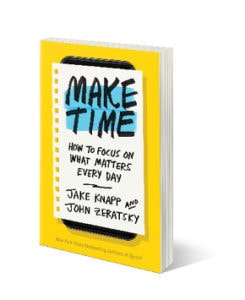 1. Make Time
1. Make Time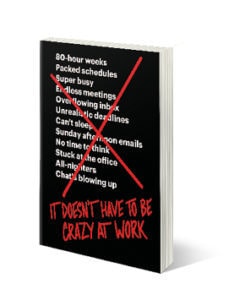 2. It Doesn’t Have to Be Crazy at Work
2. It Doesn’t Have to Be Crazy at Work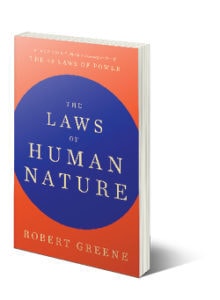 3. The Laws of Human Nature
3. The Laws of Human Nature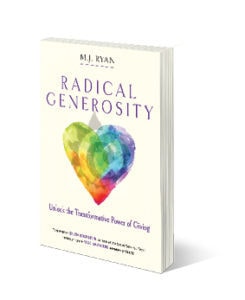 4. Radical Generosity
4. Radical Generosity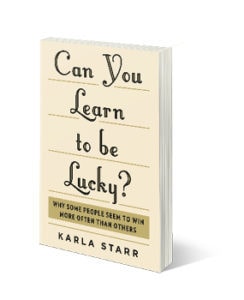 5. Can You Learn to Be Lucky?
5. Can You Learn to Be Lucky?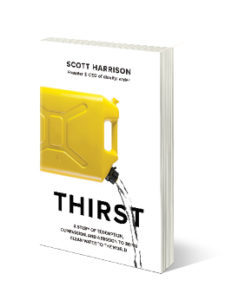 6. Thirst
6. Thirst

